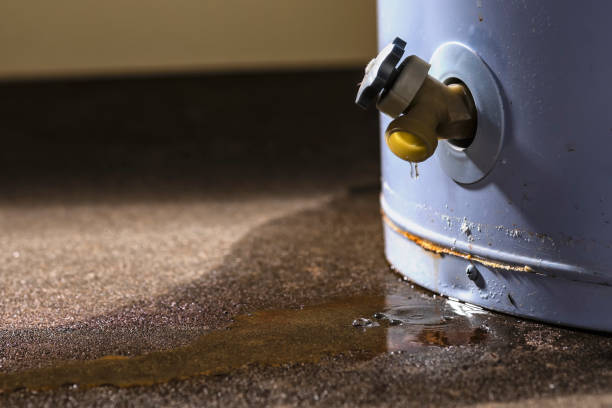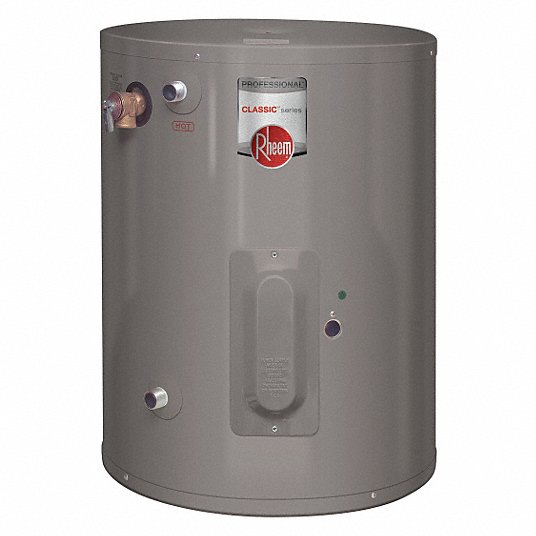Crucial Guidelines for Homeowners Confronting Challenges with Faulty Water Heaters
Crucial Guidelines for Homeowners Confronting Challenges with Faulty Water Heaters
Blog Article
We have encountered the article involving Maintaining & Draining a Water Heater directly below on the internet and think it made good sense to write about it with you on this page.

Whether it lies in the basement or a different area, broken hot water heater can trigger stress. A typical device holds 80 gallons, so an over night leakage will result in a flood. This results in major residential or commercial property damages with drenched walls as well as floorings. Having no warm water supply is additionally bothersome. If you are handling these problems, make note of the following:
Shut Down Power Source
Prior to calling the plumber, shut down a gas hot water heater by turning the temperature dial. This is generally situated at the top of the thermostat. Switch off the circuit breaker if you have a version that runs on electric power. This will prevent electrocution, particularly if there is a leakage as water is a conductor. Normally, the heating element turns off when the water strikes a specific temperature. With a broken tank, it may malfunction. Cutting it off guarantees you remain secure.
Cut Off the Cold Water Supply
Cut off the tanks tap water supply from the source. This goes from your primary water line into the container. When your storage tank is in good condition, the cold water quits filling when the tank is full. But given that it is leaking, the water will certainly continue to stream. Shut the shutoff found at the top of the heating system. Rotate this clockwise to shut it off. If you can not locate it or reach it, you must shut off that primary supply of water line outside your home.
Call the Plumber
After doing the initial two safety steps, you need to call your plumber ahead today to deal with a fractured water heater. Bear in mind that your unit will certainly not just conk out considerably overnight. There are usually indications that your aging hot water heater has sediment accumulation in the interior. Keep in mind of the following:
Do not wait on significant flooding to call the plumber. By then, you will certainly have to invest even more to recover your property. Instead, as soon as you detect these signs, have a specialist pertained to inspect your hot water heater say thanks to. Typically, water heaters have a lifespan of about 8 to 12 years. With regular assessment and upkeep, you can prolong its life.
Clean Up Residential property
After calling the plumber, paper damage by taking notes and also images so you can claim your homeowner's insurance. Remove any type of standing water to prevent mold and also mildew growth. If you have a completely submersible water pump, use that to drain the water.
Bear in mind, if you discover any type of issues with your water heater, call the pros as soon as possible. You can not take this issue lightly due to the fact that a defective thermostat can elevate water temp to a dangerously high level, leading to unexpected burns. A damaged heater stress safety valve can likewise trigger an explosion. For ideal results, obtain an annual check so your unit obtains checked, cleaned, drained pipes, as well as refilled, ensuring optimal efficiency.
Whether it is situated in the basement or a different area, broken water heating units can trigger stress and anxiety. Before calling the plumber, shut off a gas water heater by turning the temperature dial. After doing the first two safety steps, you should call your plumber to come right away to repair a burst water heater. If you have a submersible water pump, make use of that to drain pipes the water. Remember, if you observe any type of concerns with your water heater, call the pros right away.
Common Water Heater Issues and What You Should Do
What Type of Water Heater Do You Have?
Before we begin it’s first important that you identify the type of water heater you have on your property. There are two main types of water heaters out there: conventional and high efficiency.
Both of these types of products typically use either gas or electricity to heat power. There are also solar water heaters that use a thermal collector on the roof or yard to heat the water.
While these models are not as common, they can cut heating costs in half. In this article, we will focus on conventional and high efficiency.
Not Enough Hot Water
This problem is common if you live in an apartment or a house with a lot of people. Too many people use the hot water supply in the tank and the machine struggles to produce more in a timely fashion.
There’s a variety of solutions to this problem, but an easy method is simply to adjust the temperature dial on your heater and wait thirty minutes.
If you have an electrical water heater, then a power surge caused by the device may cause the circuits to trip.
You should contact an electrician quickly if this issue keeps happening — it means wiring issues are causing the machine to draw more power than it needs. You may also want to try draining your water heater.
The process of draining removes the hard water sediments that cause your machine to run less efficiently. If you want a full walk-through of how to drain water your water heater tank, then make sure to read our article before you begin.
If none of these solutions fix the problem, then the issue likely lies in a malfunction component — likely a pressure relief valve or heating element.
Changing Water Temperatures
Often it’s a joke that some showers have two temperatures: scolding hot and ice cold. Unfortunately, this common feature can be a symptom of a bigger problem.
If you notice this temperature change when you shower or do the dishes, then you should check the thermostat on the side of your water heater. First, make sure it’s set to your desired temperature.
If it still exhibits drastic temperature changes, then you may need to replace the thermostat or the heating unit inside the product. The problem may also lie in the size of the product. Remember that tanks should hold roughly 20 gallons of water per person living in the house.
A Leak in the Water Heater
A water heater leak can cause serious water damage to the floor and electrical components near the device. Remember that you should always turn off the gas or electricity and let the device cool down before inspecting for a problem.
You may be able to fix the leak by tightening screw and pipe connections as these are common causes of minor leaks. However, if you notice a substantial leak at the base of the water heater, then you should contact a technician to inspect and replace it.
Rumbling Sounds
Rumbling sounds are a sign of a serious water heater issue. Unusual sounds may come from burning sediments or malfunction heating components. If you think you hear your heater boiling, then you should turn it off immediately.
This symptom is a sign of building pressure in your tank which could cause it to explode. You can likely solve this problem by draining your tank and clearing out any sediments. However, if the problem persists you may want to call a professional.
Rusty or Smelly Water
If your water smells then there is likely rust or bacteria in your water tank. These problems can cause orange discoloration and a smell like rotten eggs. However, you should first make sure that your tank is the issue and not the water source itself.
Run cold water and see if the smell persists. If the smell only comes from hot water, then the problem is the water heater. If not, then it’s the water source. If the problem comes from your tank, then it’s likely a malfunctioning anode rod.
An anode rod is responsible for cleaning any bacteria from the tank, so this is the most likely symptom. Unfortunately, changing an anode rod requires extensive knowledge of the system. As such, you will likely need the help of a professional.
Poor Water Flow
Changes in the water pressure that comes out of your shower or sink is likely a sign of sediment buildup at the bottom. Follow our previous advice — drain the tank and flush out any of the sediments.
If the problem persists, then you’ll need to check the pipes around your device. Hire a professional plumber to clean or replace the pipes around the water heater.
https://happyhiller.com/blog/common-water-heater-issues-and-what-you-should-do/

We are very eager about What Do You Do When Your Water Heater Bursts? and I'm hoping you enjoyed the blog posting. For those who enjoyed our article kindly remember to share it. We cherish reading our article about Broken Water Heaters.
We're ready, dial now! Report this page